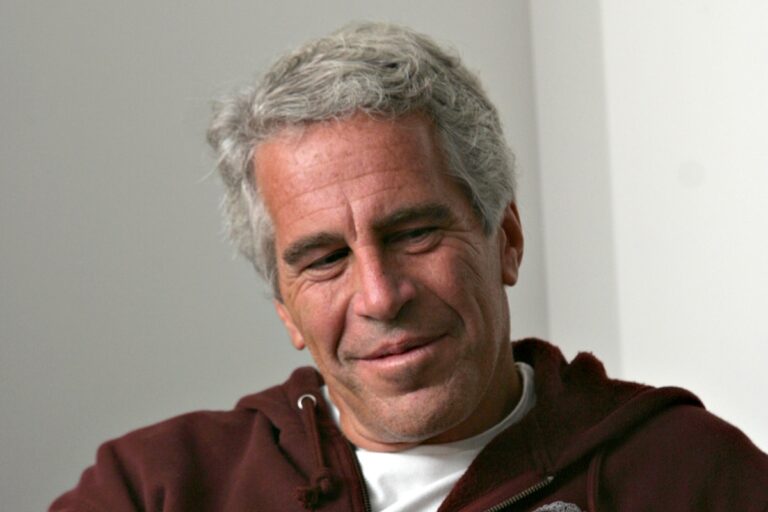
For a long time, menopause was treated exclusively from a hormonal point of view. However, science shows that lifestyle plays a central role in how each woman moves through this stage. A recent document published by the International Menopause Society. World Health Organization (WHO)at this time, strengthens this concept by relating lifestyle medicine to women’s health.
“Women at this stage need to make lifestyle adjustments. If they don’t do this, they won’t be able to successfully overcome menopause.” says the obstetrician-gynecologist and nutritionist. Alessandra Bedinfrom Einstein Hospital Israel. “This document is a compilation of things that have been talked about for some time.”
Menopause is a natural and inevitable process. As the life expectancy of the population increases, this topic becomes even more important. “If we consider that the average lifespan is 90 years, the menopause period is equivalent to about 45 years. We need to think not only about time, but also about the quality of life.” Bedin notes.
Relationship between habits and menopause
This document emphasizes that lifestyle care is the cornerstone of menopausal health, although hormone therapy and drug therapy play an important role during this period of a woman’s life. This publication is based on six key pillars recognized in lifestyle medicine. Learn more about how each factor applies to menopause below.
food
Eating a balanced diet is the main measure to avoid overweight, obesity and cardiovascular disease during menopause. Estrogen is the main protective factor for women’s health during their reproductive years, and the decline in this hormone after age 45 promotes the accumulation of highly inflammatory and dangerous visceral fat. Therefore, cardiovascular risk increases with menopause. “This is an important tipping point for women in terms of health and complications.” Alessandra Bedin observes:
A diet rich in vegetables, fruits, and whole grains can help reduce your risk of these diseases and osteoporosis. “Food Pyramid” mediterranean diet Includes intake of animal protein in moderation. The base is vegetables and whole grains. Next comes fish, then chicken, and finally lean red meat. ”
Take enough calcium and vitamins D It is also essential for maintaining bone health. “During menopause, it is recommended to consume 1,200 mg of calcium per day, or four servings of milk or dairy products. Each serving is equivalent to one glass of milk, one slice of cheese, or one glass of yogurt. Most women cannot achieve this goal through diet alone.” says the doctor. Vitamin D depends primarily on exposure to sunlight, so supplementation is typically required.
physical activity
Regular exercise is one of the most important pillars of lifestyle medicine and is the main recommendation for women who cannot undergo hormone replacement therapy due to health problems (such as breast cancer). “Exercise can actually influence the reduction of vasomotor symptoms, improve sleep, prevent osteoporosis and sarcopenia, and have important anti-inflammatory effects.”emphasizes the gynecologist.
The ideal is to combine aerobic exercise with resistance exercise, but the book emphasizes that the key is to break away from a sedentary lifestyle. A physically active lifestyle can help you control weight, reduce visceral fat, release endorphins, and reduce anxiety. Additionally, there is evidence that exercise reduces the hot flashes characteristic of menopause, perhaps by affecting the brain’s thermoregulatory system.
mental health
Controlling stress and emotions is also an important point in preventing lifestyle-related diseases. Research shows that chronic stress increases cardiovascular risk and worsens symptoms such as hot flashes. “Elevated adrenaline and cortisol levels worsen vasomotor symptoms, and decreased estrogen makes women more susceptible to mood and anxiety disorders.” doctor explains einstein.
As well as seeking professional support if needed, it’s worth incorporating practices such as therapy, mindfulness, and meditation. “The climax is PMS It dragged on. And we need to take care of our mental health as seriously as we take care of our bodies. ” says Alessandra Bedin.
risk substances
Smoking and drinking alcohol can have a negative impact on your overall health. “Smoking increases your risk of cancer, cardiovascular disease, and osteoporosis. Even small amounts of alcohol cause inflammation, which can lead to weight gain and fatty liver (fatty liver), which worsens during menopause.” Bedin warns. It’s worth remembering that, according to the WHO, there is no safe dose of alcohol.
sleep
Insomnia is one of the most common symptoms of menopause. “Many women wake up around 3 a.m. and can’t get any more sleep, causing daytime sleepiness and negatively impacting their metabolism.” An obstetrician-gynecologist explains. Gaining weight during this stage also increases your risk of snoring and sleep apnea, which impairs the quality of your rest.
But getting a good night’s sleep is one of the pillars of a healthy lifestyle. “Sleep hygiene is simple but highly effective. Preparing for sleep is one of the most important strategies for menopausal health. This includes avoiding screens for at least an hour before bed, avoiding caffeine at night, taking a relaxing warm bath, being physically active, and creating a pre-bedtime routine.”
Social connections are essential during menopause
The final pillar of lifestyle medicine is human relationships. Loneliness and social isolation can affect adherence to healthy habits and increase the risk of disease, especially as we age. “Social and emotional connections are associated with longevity. Women with support networks are more likely to be mindful of their diet and exercise and keep up to date with medical appointments.” says the obstetrician-gynecologist.
Relationships enhance self-care and provide purpose, which are critical to healthy aging. “While there is no way for women to avoid menopause, it is possible to overcome it in mild ways. Those who take care of these pillars will have a better quality of life and will likely need fewer medications. The secret to longevity lies in the choices you make every day.” concludes Bedin.
*Text by Fernanda Bassett, from Agência Einstein



